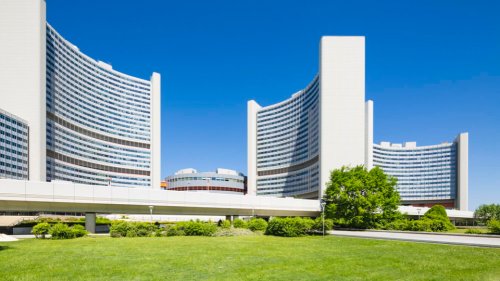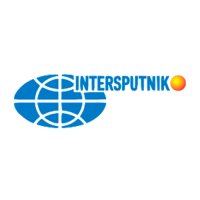During the two-week session, the Scientific and Technical Subcommittee discussed various topics, including the practical application of space technology and ensuring the sustainability of space activities. Intersputnik was, as usual, particularly interested in the agenda item of using the geostationary orbit (GEO) for space communication purposes.
At the Subcommittee’s request, Véronique Glaude, a Senior Radiocommunication Engineer in the Space Services Department of the Radiocommunication Bureau and an observer from the International Telecommunication Union (ITU), presented a report on ITU’s contribution to the peaceful uses of outer space, including the use of geostationary and other orbits. The full text of the report is available on the ITU webpage at https://www.itu.int/en/ITU-R/space/snl/Pages/reportSTS.aspx
Below are the key points.
Main trends
The main trends highlighted in Ms Glaude’s presentation are the continuous rise in submissions for both geostationary and non-geostationary satellite systems. Since 2017, the number of geostationary systems that have reached the notification stage has been constantly increasing, with a growth of 2,6% in 2022. As for non-geostationary satellite systems, there were three times more applications filed in 2022 than in 2014. Of particular note is that several telecommunications administrations have provided information for preliminary publication indicating that the number of satellites in the announced constellations exceeds 1,000 or even 10,000.
In 2022, there was also an increase in the number of registrations of satellite systems, with four additional administrations submitting applications for the registration of non-geostationary systems. Of 107 administrations that have filed satellite networks, 91 have applications for non-geostationary systems.
Preparations for WRC-23
Today, the ITU Radiocommunication Sector (ITU-R) is in the final stages of studying the agenda items and preparing the report for the World Radiocommunication Conference (WRC-23), scheduled to take place in November-December 2023 in Dubai.
One of the outstanding tasks is to ensure the functioning of Earth Stations in Motion (ESIM) - mobile ground stations. ITU-R study groups and working parties are continuing to consider issues related to protecting the frequency bands allocated for ESIM operation with geostationary satellites, as well as developing technical, operational, and regulatory measures to safeguard other services.
It is necessary to refine the regulation of new satellite constellations, carefully examine and improve the regulation of the use of allocated frequency bands to ensure equitable access to satellite spectrum for all countries.
Another issue that requires attention at WRC-23 is the provision of operational frequencies for Earth observation services.
Key Findings
During the discussions, several members of the Scientific and Technical Subcommittee emphasized that the geostationary orbit was of strategic and economic importance for nations. However, as a limited natural resource, there is a risk of oversaturation. Therefore, it is crucial to regulate the use of GEO and ensure equitable access for all countries, regardless of their technical capabilities, while considering the needs of developing nations and their geographical location.
Intersputnik, which includes 19 developing nations, is actively implementing comprehensive projects that contribute to just and efficient use of the radio frequency spectrum and satellite orbits. It offers stakeholders a joint access to orbit and frequency resources, along with a worldwide access to satellite communication system.
The Subcommittee has also highlighted that due to the limited availability of positions in the GEO, countries must develop partnership to optimize the use of this scarce resource. Intersputnik takes this opportunity to reiterate its willingness to engage in international cooperation in this field.
As a permanent observer at the United Nations Committee on the Peaceful Uses of Outer Space, Intersputnik will continue actively participate in the work of the Scientific and Technical and the Legal Subcommittees as well as in the meetings of the COPUOS itself. The work of the Legal Subcommittee, scheduled for March 2023, enables Intersputnik to stay at the forefront of global regulatory issues, reflecting the interests of the Organization's Member States in the agenda of the legal regulation of space activities. In carrying out its operations, Intersputnik always upholds the principles of cordial cooperation, transparent discussion of emerging challenges, and a search for compromise while respecting the interests of all players - this is a constant prerequisite for the use of outer space to improve the quality of life for humanity as a whole.
--
 Operations Committee
Operations Committee
